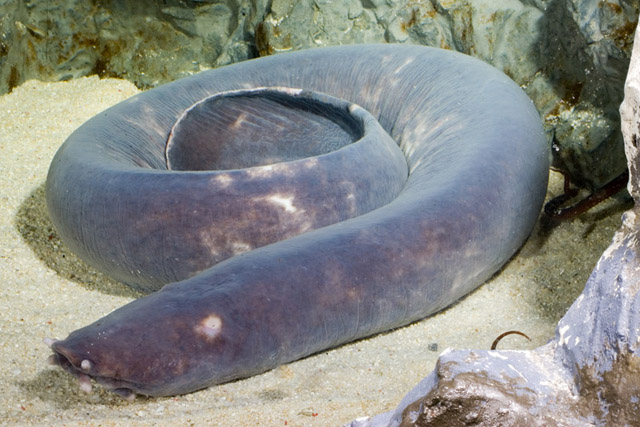| Myxinidae (Hagfishes), subfamily: Eptatretinae |
| 97 cm TL (male/unsexed) |
|
bathydemersal; marine; depth range 0 - 1100 m, non-migratory |
| Western Pacific: southern and eastern Australia and New Zealand. |
|
Dorsal spines (total): 0-0; Dorsal soft rays (total): 0-0; Anal spines: 0-0; Anal soft rays: 0-0. This species differs from all its congeners except E. caribbeaus, E. goliath, E. menezesi and E. strahani by having 7 pairs of gill pouches and three-cusp multicusps on the anterior and posterior rows of cusps. It differs from E. caribbeaus in number of anterior unicusps (8-11 vs. 11-13), posterior unicusps (7-9 vs. 10-11), total cusps (43-51 vs. 54-58) and prebranchial pores (16-20 vs. 13-15); from E. goliath in number of anterior unicusps (8-11 vs. 11-13), total cusps (43-51 vs. 54) and trunk pores (46-53 vs. 57-58); from E. menezesi in number of posterior unicusps (7-9 vs. 9-12), total cusps (43-51 vs. 52-60), tail pores (10-14 vs. 14-18); from E. strahani by its number of prebranchial pores (16-20 vs. 13-16) (Ref. 85052). |
| Occurs on soft bottoms of the continental slope (Ref. 7300). Able to form locally abundant populations and is often associated with inshore reefs (Ref. 85052). |
|
Least Concern (LC); Date assessed: 09 November 2009 Ref. (130435)
|
| harmless |
Source and more info: www.fishbase.org. For personal, classroom, and other internal use only. Not for publication.

